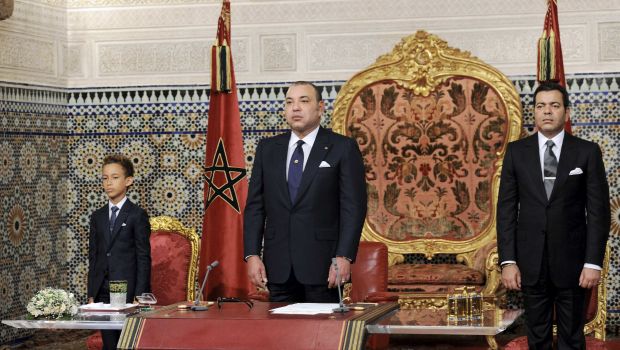As the world is witnessing the surprisingly smooth political transition in Mali, Morocco is not only determined to speed up the pace of its own partnership with African countries. It is also committed, at the highest level, to upgrade the economic integration of the African continent, which has evolved rapidly over the past few years in an area of strategic development.
Indeed, beyond the strong political ties binding Morocco to most African countries, the country has not waited for international economic powers to look towards Africa to show interest in the continent and spearhead mutually advantageous south–south cooperation. Having realized years ago that the genuine growth of its economy has to be sought southward, Morocco has multiplied initiatives to boost its economic relations with its southern partners.
Therefore, Morocco’s choice of the south-bound path is quite natural, given its centuries-old historical, cultural and economic ties with the African continent. Indeed, Morocco has always had a strong presence across Africa and has played a key role in fostering trans-Saharan trade, which dates back to the ninth century and which reached its peak between the 13th and 16th centuries, laying a bridge between the mainland and the rest of the continent.
Today, centuries later, this bridge is still crossed by several Moroccan institutions and firms, which do not hesitate to invest in African countries, to do business and, at the same time, to contribute to the socio-economic development of the continent.
These firms find incentives in the personal commitment of Morocco’s King Mohammed VI, who strives ceaselessly to consolidate his country’s bilateral relations with the rest of Africa and to boost south–south cooperation. Since his coming to power in 1999, the King has made Africa one of his strategic choices, as evidenced by the number of African tours he has conducted and the number of African heads of state he has hosted in Morocco. Indeed, the King of Morocco personally attended the swearing-in ceremony of the newly elected president of Mali, Ibrahim Boubacar Keita, in Bamako to renew Morocco’s commitment to a unified, stable Mali.
In addition to this, as part of its humanitarian assistance to the Malian people, Morocco also set up a military field hospital in Bamako that provides medical care in different specialties. Morocco’s commitment towards Africa is also translated into the financial and humanitarian assistance the country provides whenever an African country is facing difficulties, social upheavals or natural hazards.
King Mohammed VI has been a driving force in the continental bid to establish a new and modern process of inter-African development and has always demonstrated a constant and keen interest in bolstering Morocco’s relations and cooperation with other African nations.
Given the personal involvement of King Mohammed VI, it is hardly surprising to see Moroccan companies choosing Africa first when they go international. Thus, many large Moroccan firms—including banks like BMCE, Attijariwafa Bank and Banque Populaire, real estate developers like Addoha and Alliances Développement Immobilier, insurance companies like the Saham Group, mining and industrial companies like the Managem Group & OCP, and telecom companies like Maroc Telecom are currently operating in some 23 African countries, with a particular focus on the members states of the Economic Community Of West African States (ECOWAS). Between 2006 and 2012, approximately 40 percent of Morocco’s direct investment went to Africa, while Moroccan operators participated in huge projects in the sectors of low-cost housing, civil engineering, water quality, transport and more. Telecom sector profits alone have recorded a 12 percent increase thanks to its sub-Saharan presence in Gabon, Burkina Faso, Mali and Mauritania, while Moroccan carrier RAM is servicing 26 African countries from its Casablanca hub.
But however strong Morocco’s ambitions and however bright its investment in sub-Saharan Africa, the country’s anchor to the continent is affected by market fragmentation and Africa’s weak integration.
Many observers believe that regional integration is a crucial economic necessity for the development of the continent, which remains fragmented. Intra-African trade, for instance, does not exceed 11 percent, while intra-Asian trade stands at 27 percent.
The huge cost of non-integration for African economies is assessed at around 1 to 3 percent of GDP, making integration a critical area for economic growth.
It goes without saying that comprehensive integration is a long, arduous process. In order to move forward, African countries need to begin with the most feasible form of integration, which is also the most optimal in terms of cost, benefit and time: financial convergence. It can be achieved mostly through increased cooperation, better rules, mutual concessions and minor investments, knowing that deep and well-functioning financial systems contribute to providing access to cheaper and longer-term capital that companies need to sustain growth.
Moreover, efficient capital markets that are less fragmented will allow Africa to capture a larger share of international capital, ensure better allocation of funds, improve corporate governance through higher transparency, and facilitate regional cross-border investment and operations by providing an enhanced regional investment climate.
African governments also need to work together to reduce the administrative burden for regional companies and to facilitate cross-border flows through bilateral treaties. This is a crucial prerequisite to attract more international investors and companies looking at investing their surplus financial liquidity in the region. Morocco has already grasped the strategic, economic and commercial importance of the continent. It is strongly committed to working with all regional actors in order to facilitate the political and economic transitions Africa is witnessing. A first major step has been accomplished in Mali, but the second step will require everybody’s participation to achieve a true financial integration of the continent as a source for future common prosperity.
